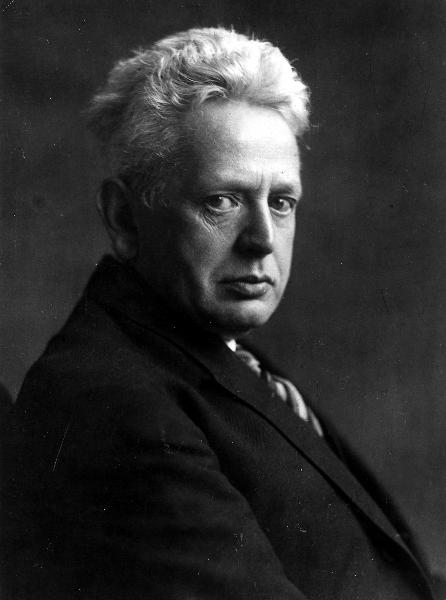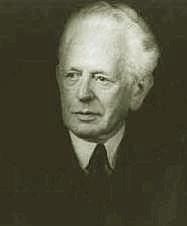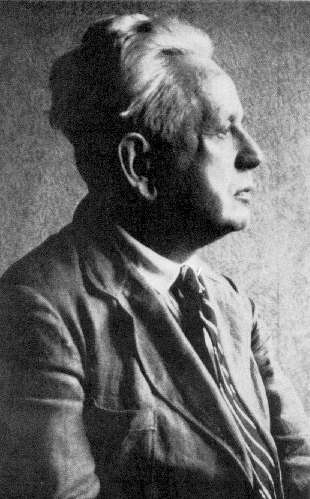<Back to Index>
- Philosopher Ernst Cassirer, 1874
- Painter Judith Jans Leyster, 1609
- Grand Duchess of Mecklenburg Schwerin Anastasia Mikhailovna of Russia, 1860
PAGE SPONSOR



Ernst Cassirer (July 28, 1874 – April 13, 1945) was a German philosopher. He was one of the major figures in the development of philosophical idealism in the first half of the 20th century. Influenced by Hermann Cohen and rooted in the Marburg tradition of Neo - Kantianism, Cassirer developed a philosophy of culture as a theory of symbols founded on a phenomenology of knowledge.
Cassirer was born in Breslau (Wrocław), Silesia, into a Jewish family. He studied literature and philosophy at the University of Berlin. After long years as Privatdozent at the Friedrich Wilhelm University in Berlin (Cassirer turned down the offer of a visiting professorship at Harvard which he and his wife considered obscure and remote), he was elected to a chair of Philosophy at the newly founded University of Hamburg in 1919, where he lectured until 1933, and supervised the doctoral thesis of Leo Strauss, among others. Cassirer was forced to leave Germany when the Nazis came to power because he was Jewish.
After leaving Germany he found first refuge as a lecturer in Oxford 1933 – 1935; he was then professor at Gothenburg University 1935 – 1941. When Cassirer — who considered Sweden too unsafe by then — tried to go to the United States and specifically to Harvard, the university turned him down because he had turned Harvard down thirty years earlier. Thus, he first had to work as a visiting professor at Yale University, New Haven 1941 – 1943, and only then moving to Columbia University in New York, where he lectured from 1943 until his death in 1945. As he had been naturalized in Sweden, he died on the Columbia campus as Swedish citizen of German - Jewish descent.
His son, Heinz Cassirer, was also a Kantian scholar.
Cassirer opposed the Prussian nationalism of Oswald Spengler (1880 – 1936). Instead of being apolitical, Cassirer applauded the rise of the Weimar Republic,
while Spengler criticized parliamentary and constitutional rule, as
well as individual rights, as un-German. Spengler never became a
university academic, but his Decline of the West (1918)
was a best seller. Spengler saw technology as a means to transform
Western society into a unified collective, while Cassirer was
suspicious of technology's ability to exalt the group over the
individual. Spengler saw civilization as the decline of culture,
according to the physical law of entropy, while Cassirer disagreed with
the application of physics to philosophy. Though both thinkers were
inspired by Johann Wolfgang von Goethe's concept of the symbol,
Spengler wrote about cultural souls that can only be observed, not
created, while Cassirer saw symbols as being created by individuals.
After the rise of Nazism, Cassirer became more committed to changing
society and more political. Although Spengler himself opposed the
Nazis, Cassirer saw Spengler's anti-liberal philosophy as contributing to Nazi goals.
Cassirer
was a defender of the notion that reason's self-realization leads to
liberation and human and civil rights. Mazlish argues that in Die Philosophie der Aufklärung (The Philosophy of the Enlightenment, 1932) Cassirer approached his subject as an idealist, interested only
in the analysis of ideas and their influence, without regard to the
intellectual, political, or social context in which they were produced.
Nevertheless, his interest in the use of symbols and the possibility of
new techniques for the transmission of ideas links him to contemporary
cultural studies. Cassirer's book has several serious blind spots and
omissions but it is an original and fresh approach which presents a
correct understanding of the Enlightenment project which contemporary
scholars should know.
When Cassirer left Germany in 1933, he left his antagonist Martin Heidegger to dominate postwar Continental philosophy.
In 1921 Cassirer, stimulated by Einstein's general theory of relativity, addressed the subject of scientific epistemology. Cassirer found that Einstein's theory gave overwhelming support to his neo-Kantian conception of knowledge which rejected the fixed and embraced the evolutionary development of ideational structures. Moritz Schlick responded (foreshadowing logical empiricism) with a review of Cassirer's book in which he argued that the general theory of relativity in fact refutes Kantian thought in all its permutations. But Cassirer soon extended his thoughts on Einstein's theory to a more general relativity of "symbolic form": aesthetic, ethical, religious, and scientific. He spent the rest of his career elaborating his ideas regarding symbolic forms.
Cassirer was both a genuine philosopher and an historian of philosophy. His major work, Philosophy of Symbolic Forms (3 vols., 1923 – 1929) is considered a benchmark for a philosophy of culture. Man, says Cassirer later in his more popular Essay on Man (1944), is a "symbolic animal". Whereas animals perceive their world by instincts and direct sensory perception, man has created his own universe of symbolic meaning that structures and shapes his perception of reality - and only thus, for instance, can conceive of utopias and therefore progress in the form of shared human culture. In this, Cassirer owes much to Kant's transcendental idealism, which claimed that the actual world cannot be known, but that the human view on reality is shaped by our means of perceiving it. For Cassirer, the human world is created through symbolic forms of thought which are linguistic, scholarly, scientific, and artistic, sharing and extending through communication, individual understanding, discovery and expression.
Cassirer's last major work was The Myth of the State. The book was published posthumously in 1946 after Cassirer's sudden death. Cassirer argues that the idea of a totalitarian state evolved from ideas advanced by Plato, Dante, Machiavelli, Gobineau, Carlyle and Hegel. He concludes that the Fascist regimes of the 20th century were symbolised by a myth of destiny and the promotion of irrationality.